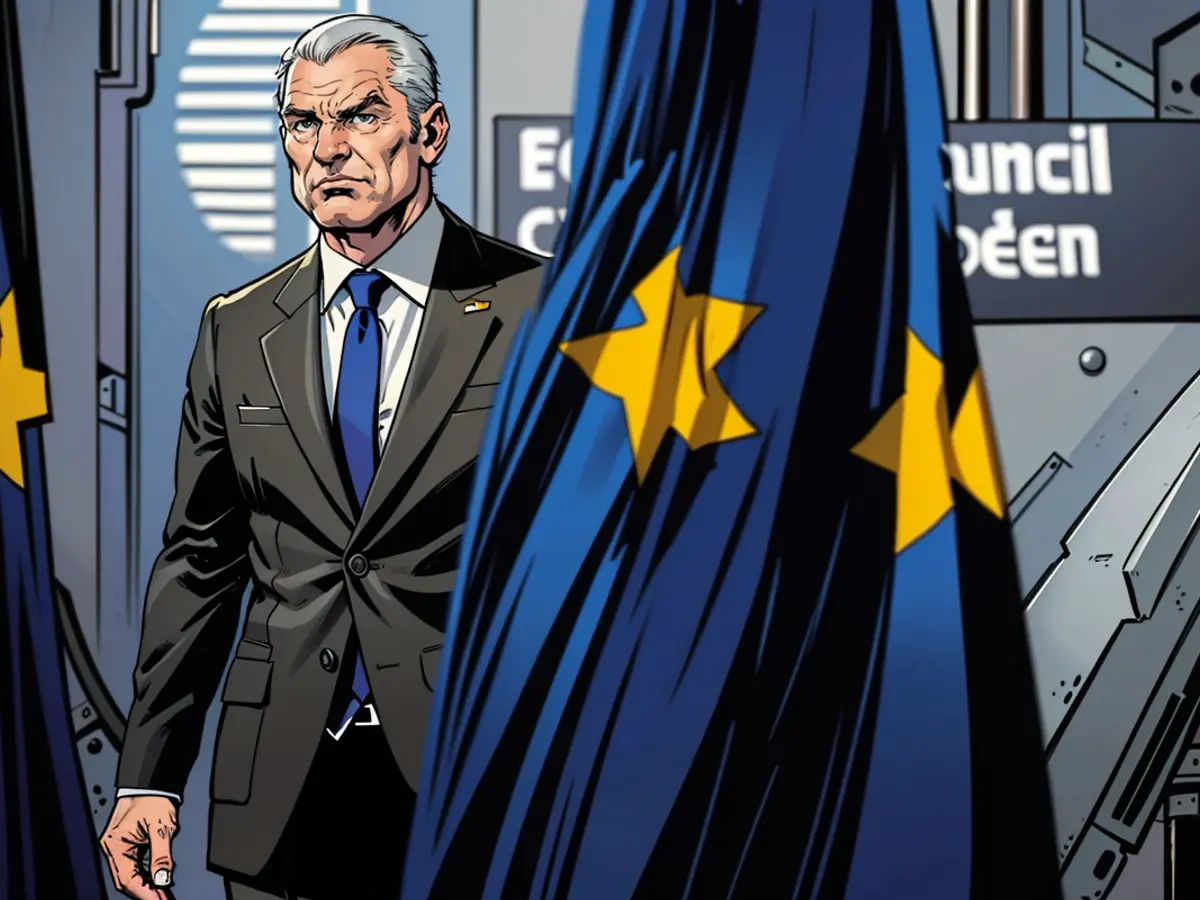Top jobs and a guest of honor: Scholz & Co consult in Brussels
EU Commission President, EU High Representative and EU Council President: At an EU summit in Brussels this Thursday and Friday, a formal decision on the new appointment of EU top jobs following the European election is expected. It is nearly certain that German CDU politician Ursula von der Leyen will be nominated for a second term as President of the EU Commission.
An informal agreement among the heads of state and government of the major European party families before the summit sees the liberal Estonian prime minister Kaja Kallas set to become the EU's Foreign Policy Chief and the social democratic former Portuguese prime minister António Costa to be elected EU Council President. In this role, Costa would be responsible for preparing EU summits and chairing working sessions.
Zelenskyy expected at summit
At the margins of the leaders' meeting, an agreement on Ukraine-EU security cooperation is also planned to be signed. Ukrainian President Volodymyr Zelenskyy is expected in Brussels for this purpose. In addition to the personnel package, a so-called strategic agenda for the years up to 2029 is set to be adopted at the summit. With it, the alignment and goals of the EU will be set for the next five years. Moreover, discussions on the situation in the Middle East and on EU competitiveness and defense industry are on the agenda.
The informal agreement on the personnel package is based on the result of the European election about two weeks ago. The Centre-Right European People's Party (EPP) with CDU politician Ursula von der Leyen as their Spitzenkandidate achieved the best result. They intend to form an informal coalition with the second-placed party family, the Social Democrats (S&D), and the Liberals (Renew). For the EPP - to which the CDU and CSU also belong - the negotiations were led by Polish Prime Minister Donald Tusk and Greek Prime Minister Kyriakos Mitsotakis, for the Social Democrats by German Chancellor Olaf Scholz and Spanish Prime Minister Pedro Sánchez. The Liberals are relying on French President Emmanuel Macron and the outgoing Dutch Prime Minister Mark Rutte as negotiators.
Now, the personnel package also needs to be formally approved at the summit. This requires the approval of 20 EU states representing at least 65% of the EU population. Italian right-wing Prime Minister Giorgia Meloni has recently expressed anger that, despite the good results of her Fratelli d'Italia (Brothers of Italy) party in the European election, she was not directly involved in the negotiations on the personnel package. Her approval is expected to be unnecessary.
Parliament can still block von der Leyen however.
The European Parliament can theoretically still veto the appointment of heads of state and government. A majority of the Parliament must confirm the composition of the Commission. The informal alliance of EVP, Social Democrats, and Liberals theoretically has a comfortable majority of approximately 400 out of 720 votes. However, it is expected that a certain number of deputies in the secret ballot will deviate from their faction's line and not give their vote to Leyen. Therefore, it is expected that Leyen will also still make efforts to win over votes from deputies of other parties, especially from the Greens. Representatives and representatives of the Greens have recently signaled a willingness to talk.
Ukraine receives security guarantees
The security agreement that the EU intends to sign with Ukraine goes back to an initiative of the G7 group of western economic powers. They had agreed at the NATO summit in Vilnius, Lithuania, the previous year that individual countries should conclude bilateral agreements with Ukraine to ensure its long-term security. Countries such as Great Britain, Germany, and France made the beginning in January and February. Most recently, the USA followed suit.
With the agreements, the Ukraine will be given, among other things, weapons deliveries, financial aid, and political cooperation. They are intended to help bridge the time until the desired NATO membership of the country. For example, Germany has promised the Ukraine to continue and expand its military support – among other things, through further weapons deliveries and the training of Ukrainian soldiers and soldiers.
Most recently, Zelenskyy signed a security agreement between his country and Belgium in Brussels at the end of May. With him, Ukraine will be given, among other things, the delivery of 30 F-16 fighter jets.
- At the EU summit in Brussels, a formal decision on Ursula von der Leyen's second term as EU Commission President is anticipated.
- António Costa, the former Portuguese prime minister, is expected to be elected EU Council President following the summit.
- Volodymyr Zelenskyy, the Ukrainian President, is scheduled to attend the EU summit for discussions on Ukraine-EU security cooperation.
- Olaf Scholz and Pedro Sánchez led the negotiations for the Social Democrats in establishing the personnel package for the EU top jobs.
- Giorgia Meloni, the Italian Prime Minister, has expressed disappointment over not being directly involved in the personnel package negotiations.
- The European Parliament still has the power to veto the appointments of heads of state and government, requiring a majority vote to confirm the Commission's composition.
- The security agreement between the EU and Ukraine includes weapons deliveries, financial aid, and political cooperation, aiming to help Ukraine achieve NATO membership.
- Germany has pledged to continue and expand its military support to Ukraine, including further weapons deliveries and the training of Ukrainian soldiers.








